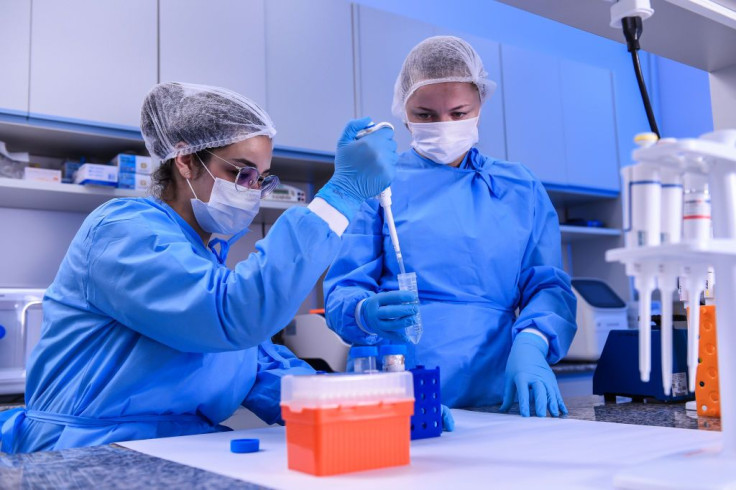A positive development has been observed in the volunteers who had received the company Moderna’s COVID-19 vaccine -- an immune response has been triggered in their system with the manufacture of antibodies against the virus. Experts found that the vaccine is safe and was well-tolerated by the small group of patients they tested it on.
Moderna, a Cambridge, Massachusetts-based company declared the results from its phase 1 clinical trial on May 18. In phase 1, 45 people were involved, of which eight developed neutralizing antibodies, known to provide protection from the virus. These were the antibodies that were only seen in recovered of COVID-19.
While everyone else, who received two lower doses, developed antibodies about two weeks after the second dose. In fact, all the 45 study participants each received two doses of the vaccine with a gap of a month in between. They were given one of three dosage levels: 25 micrograms, 100 micrograms, and 250 micrograms.
"We could not be happier about this interim data," Moderna CEO Stéphane Bancel said, adding as per the results it is certain that the vaccine has a "high probability to provide protection from COVID-19 disease in humans."
But as the goal of phase 1 trials is an attempt to find out how safe the new drug is, the phase 2 trials will observe it in larger studies and further focus on the extent to which the vaccine works.
With the sole side effect of the vaccine being redness around the area where it was injected in the body, many physicians are hopeful about the vaccine based on its promising results.
"It's great news to see what appears to be a potentially effective vaccine has been created and appears safe," Dr. Iahn Gonsenhauser, chief quality, and patient safety officer at the Ohio State University Wexner Medical Center, said. “What's more, it's promising the antibodies the patients developed were "shown to be effective at limiting the virus's replication in the lab," he added.
"Overall this looks pretty good," said Dr. Michael Ison, a professor in the division of infectious disease and organ transplantation at Northwestern University Feinberg School of Medicine in Chicago. "That being said, this is a new kind of vaccine platform, and some of the safety signals may take time to be recognized.”

© 2025 Latin Times. All rights reserved. Do not reproduce without permission.



